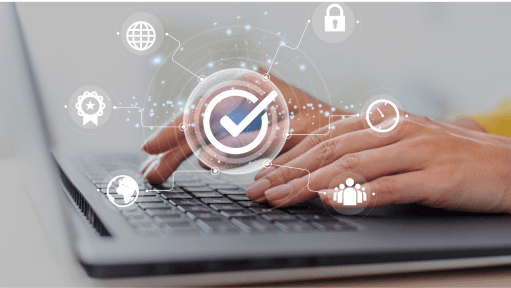
How to Safeguard Digital Assest From Cyber Attacks?
In an era dominated by digital innovation, the importance of safeguarding digital assets cannot be overstated. Whether it's sensitive personal information, financial data, or intellectual property, individuals and businesses alike need to take proactive measures to protect their digital wealth. This article explores key strategies and best practices for securing digital assets and ensure cybersecurity.
1. Cybersecurity Awareness
One of the fundamental steps in protecting digital assets is cultivating awareness about cybersecurity. Users should be educated about the potential threats, such as phishing attacks, malware, and ransomware. Regular training sessions and awareness programs can empower individuals to recognize and mitigate these risks.
2. Implementing Robust Password Policies
Encourage the use of strong, unique passwords and implement multi-factor authentication (MFA) wherever possible. Update passwords regularly and refrain from using passwords that can be guessed easily like names or birthdays to prevent cyberattacks.
3. Secure Data Storage and Backups
Data should be stored securely, whether in the cloud or on-premises. Regular backups are crucial to ensure the quick recovery of information in the event of data loss or a security breach. Cloud service providers often offer advanced security features, but it is essential to configure settings appropriately and understand the shared responsibility model.
4. Encryption Technologies
Implementing encryption technologies adds an extra layer of protection to sensitive data. Both data at rest and data in transit should be encrypted to safeguard against unauthorized access. This is especially important when transmitting confidential information over networks.
5. Compliance with Data Protection Regulations
The UAE has implemented robust data protection regulations, such as the Dubai Data Law and the Abu Dhabi Global Market (ADGM) Data Protection Regulations. Businesses and individuals should familiarize themselves with these regulations to ensure compliance and mitigate legal risks associated with data breaches.
6. Regular Security Audits and Vulnerability Assessments
Conducting regular security audits and vulnerability assessments can help identify and address potential weaknesses in digital infrastructure. This proactive approach allows for the timely implementation of security patches and updates, reducing the risk of exploitation by malicious actors.
7. Secure Communication Channels
Utilize secure communication channels, such as Virtual Private Networks (VPNs), especially when accessing sensitive information remotely. VPNs encrypt data during transmission, protecting it from interception by unauthorized parties.
8. Employee Training and Security Policies
Implement comprehensive security policies and ensure that employees are well-trained in cybersecurity best practices. This includes guidelines on handling sensitive information, recognizing social engineering attempts, and reporting security incidents promptly.
9. Secure IoT Devices
As the Internet of Things (IoT) continues to grow, securing connected devices is paramount. Ensure that IoT devices are configured with strong passwords, and regularly updated firmware, and are isolated from critical networks when possible. Unauthorized access to IoT devices can pose significant risks to overall digital security.
10. Blockchain Technology
Explore the potential benefits of blockchain technology for securing digital assets. Blockchain offers a decentralized and tamper-resistant ledger, making it an attractive option for industries such as finance, healthcare, and supply chain management. Understanding the application of blockchain in securing digital assets is crucial for staying ahead in terms of security.
Protecting digital assets is a shared responsibility that requires a combination of technological solutions, user awareness, and adherence to regulatory frameworks. By adopting a holistic approach to cybersecurity, individuals and businesses in the UAE can safeguard their digital wealth and contribute to a more secure digital environment. Continuous vigilance, education, and proactive measures are key to mitigating the evolving threats in the digital landscape.
For any enquiries or information, contact ask@tlr.ae or call us on +971 52 644 3004. Follow The Law Reporters on WhatsApp Channels.